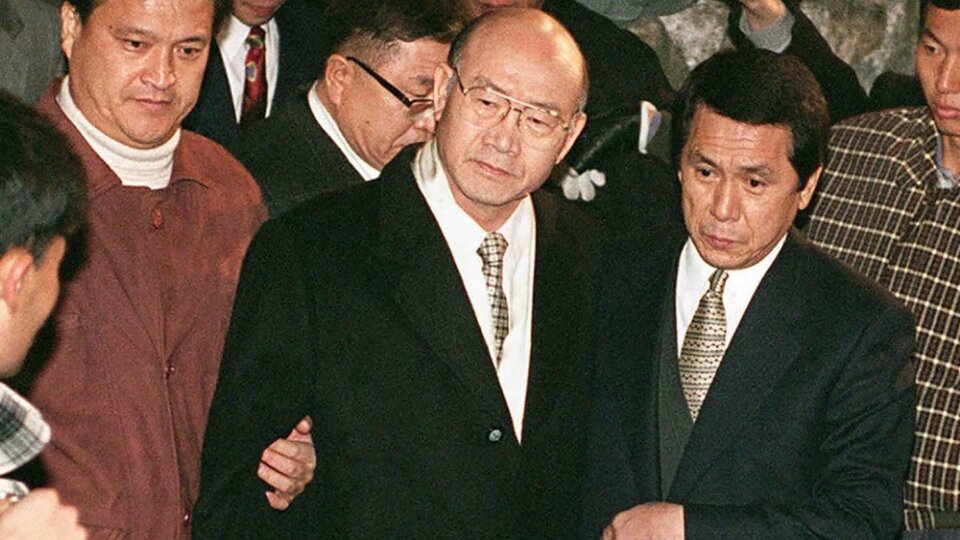When university students from the southern city of Gwangju in South Korea – fed up with assassinations in the face of their demands for democratization and in the face of Martial Law – stormed police stations and armed themselves against repression, the dictator Chun Doo-hwan ordered the dispatch of 20,000 troops. from the Demilitarized Zone (DMZ) that it controlled with the US The McDonnell Douglas MD 500 helicopters lent by its allies were part of the operation: from the air they wounded or killed hundreds of people, who had taken control of part of the city and they negotiated an agreement. Dozens of students – even minors and pregnant women – were raped as part of the repression, in parallel with executions and torture. Some 200,000 people participated in the protest for ten days and the most documented data estimates between 600 and 2300 deaths.
The incident occurred in August 1980, nine years before the Tiananmen massacre in Beijing, and the number of murdered may be similar. However, in the West these crimes of “friendly dictators” are almost unknown, the result of convenient oblivion and silence. Its main person in charge – General Chun Doo-hwan – died almost unpunished this Tuesday in Seoul at the age of 90.
The violence between the popular militias and the military reached its climax on May 21, 1980, when the mass of people gathered in front of the provincial government office. The state forces ended up retreating towards the outskirts before the first confrontation. Until the infantry reinforcements arrived. On May 23, the military attacked a bus that tried to leave the city, killing 17 passengers (two were finished off). The popular clamor was inflamed and that same day 13 repressors were killed among them in a confusion of friendly fire. And on May 26, the army entered the city: it recovered it in 90 minutes from the massacre, later establishing forced labor camps. The Gwangju uprising had a profound political impact on South Korean history and was a milestone in the limited recovery of democracy in 1988.
The late Chun Doo-hwan had come to power in a 1979 coup, after the dictator Park Chung-hee was assassinated by his own intelligence chief. In his training he went through US military schools studying counterinsurgency and psychological warfare tactics and fought in the Vietnam War. In 1980 he organized elections without a National Assembly in which he was the only candidate for president. His defenders in the eight years that he was in power allege that he secured for South Korea the host of the 1988 Olympic Games and sustained GDP growth (8% per year). Economic prosperity went hand in hand with great repression and lack of freedom, generating claims and mobilizations of a million people throughout the country. He governed until 1987 -with very good relations with President Ronald Reagan-, granting a constitutional reform with which he managed to win the elections another general -Roh Tae-woo-, his right hand.
In 1997 Doo-hwan was convicted for the 1979 coup, the Gwangju repression and for corruption and bribery in his relationship with large economic groups (the “chaeboles”). Doo-hwan himself ended up confessing to those crimes and even issued a public apology, offering to return $ 13.4 million. And he retired in penance to a Buddhist monastery in the mountains for two years. According to the courts, the amount stolen was much higher: 185 million dollars. But the retired dictator claimed that he only had $ 250 left in his bank account. Like the families that own the chaeboles, Doo-hwan managed to hide his wealth among family and friends: his four children had bought large tracts of land and luxurious apartments in the United States.
On the massacre charges, Chun was sentenced to death in 1997 (and General Roh to life imprisonment). But the Supreme Court lowered his sentence to life in “recognition” of economic success and for having finally “granted” elections. The payment of the fine was not commuted (he paid only a quarter). And he served just one year in prison: he was pardoned by President Kim Young-sam in an “effort” for “national unity.” On the accusation of massacre, he never regretted: “I am sure that he would do it again,” he declared during the trial shielded by an alleged North Korean infiltration.
Upon coming to power in 2017, incumbent President Moon Jae-in vowed to reopen the case over the Gwangju massacre. The most right-wing sectors of society, on the other hand, condemn the popular uprising for being “supported” by communists. The current presidential spokesman regretted that “Chun did not reveal the truth of the story,” clarifying that there were no plans for the presidential office to send flowers or organize an official funeral. On the other hand, the opposition People’s Power Party (PPP) offered its condolences to the family, aware that its political roots are in the figure and the original weapon of the former dictator.
The Korean peninsula has an immense geopolitical rift at the 38th Parallel, perhaps insurmountable. But inwardly, South Korea is also cracked, among other things, because its last dictator has died almost unpunished.
.
